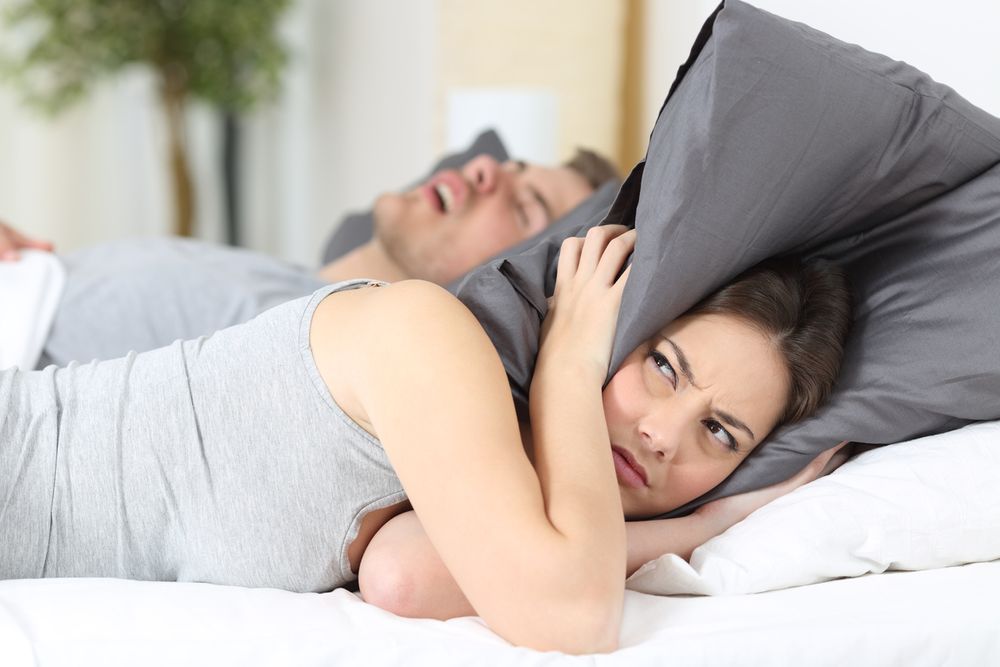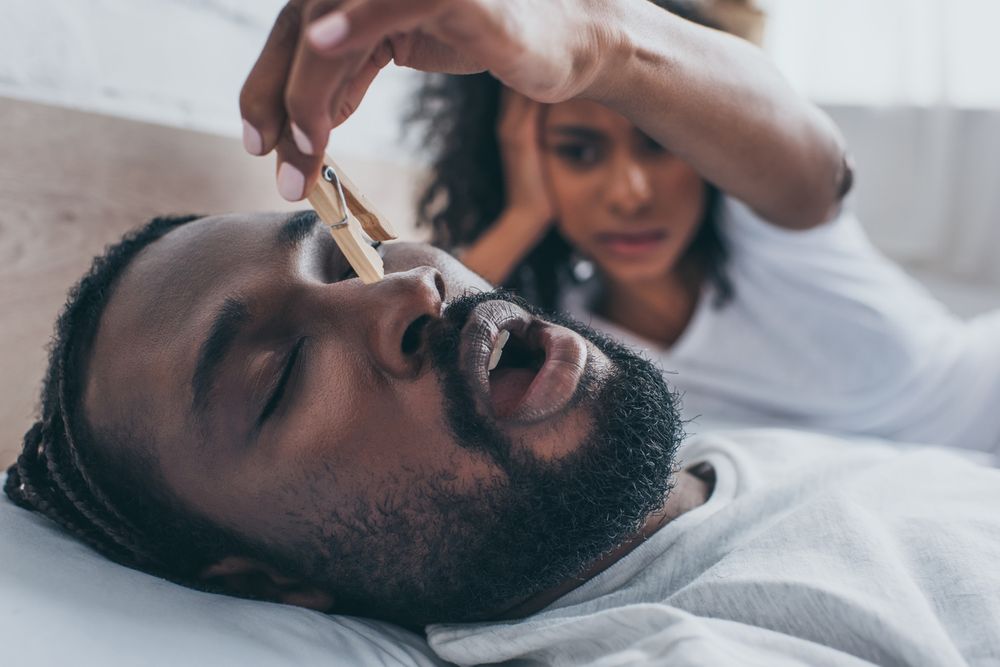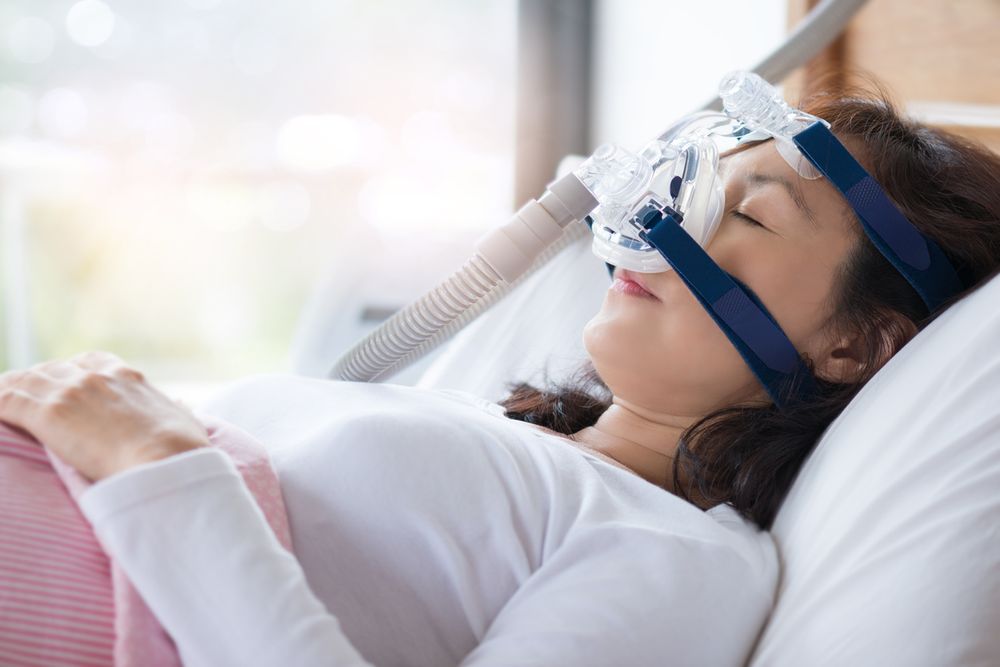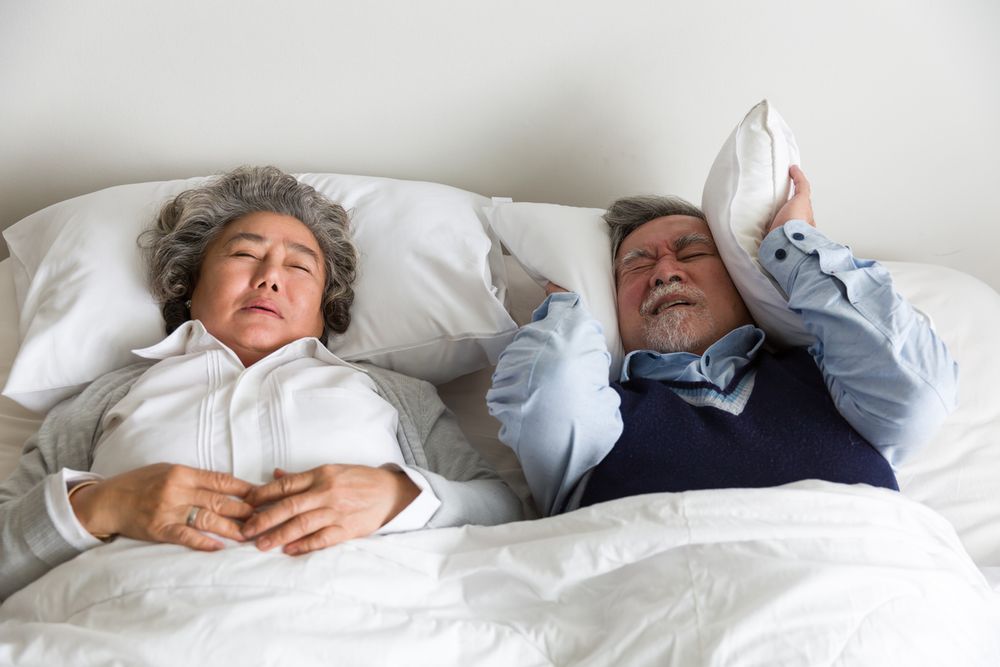Do you or a loved one snore? If you’re desperate to learn how to stop snoring, this article is for you.
View in gallery
A large percentage of the population snore, so it’s no wonder that the question of how to stop snoring is commonly asked all over the world.
Luckily for the people who do snore, they don’t know they’re doing it. Therefore, their sleep isn’t affected. But, for the people sleeping next to them, or even in the same house, snoring can be a considerable problem that disrupts sleep and causes sleep deprivation and resentment.
If you’re a snorer or subjected to listening to snoring all night long, here are some ways to stop and prevent snoring to ensure you or your partner get equal amounts of peaceful and uninterrupted sleep.
What is Snoring and Why Does It Happen?
Snoring is the hoarse sound that sometimes occurs when someone is asleep.
View in gallery
When air flows past relaxed tissues in a person’s throat, it can cause the tissues to vibrate during the breathing process. This vibration is the recognizable snoring sound.
Even if you think you don’t, most people snore occasionally, and it’s usually nothing to be concerned about. But, with that being said, it can sometimes also indicate an underlying health issue that may need to be addressed by a professional.
How to Prevent Snoring Naturally
Before we get into some medical treatments for snoring, it’s best to go down the natural route to cure your snoring issue. However, if you’ve already tried and tested all of these, it might be time to intervene medically.
View in gallery
Reduce Your Body Weight
The first natural way to stop snoring is weight loss. Weight can play a role in snoring, but it’s important to remember that overweight people aren’t the only ones who snore.
Losing weight might be the answer to your snoring problems if you’ve gained weight and have started snoring or if you’re snoring worse than before. If you didn’t snore beforehand, this additional weight could be squeezing your throat. Your throat’s smaller diameter will then make it more likely for air to flow past your throat tissues causing them to vibrate.
The majority of Americans are overweight, and obesity can cause snoring and a range of other sleep-related issues. Obstructive sleep apnea (OSA) is one of these issues. OSA occurs when the muscles in your throat temporarily relax. This relaxation causes your airway to be significantly narrowed or completely closed off. If your airway is closed, that means you aren’t breathing. And not enough oxygen in your body can have detrimental effects on your overall health.
Try Mouth Exercises
As well as exercising to try and lose weight, you could also give mouth exercises ago.
We know this may sound weird, but mouth exercises are a great natural way to reduce snoring. These exercises are known as oropharyngeal exercises and involve repeatedly moving your mouth and tongue to strengthen the muscles.
How to Perform Oropharyngeal Exercises:
- Push the tip of your tongue against your hard palate and slide your tongue backward. Your hard palate is the front section of the roof of your mouth. Repeat this process 20 times.
- Suck your entire tongue up against your hard palate and repeat 20 times.
- Force the back of your tongue against the floor of your mouth. While doing this, touch the tip of your tongue on your bottom incisors. Repeat the process 20 times.
- Elevate your soft palate and uvula while saying the vowel “A.” Repeat 20 times. Your soft palate is the back of the roof of your mouth.
- Chew your food on both sides of your mouth to evenly build the muscles.
As with all exercise, you won’t see results straight away, and it may take a few months to notice a difference in your snoring issue. Consistency is key, so set aside a few minutes each day to attempt your oropharyngeal exercises.
Open Your Nasal Passages
Keeping your nasal passages clear and open may help with your snoring. If your nasal passages are blocked, it will result in a large amount of air trying to get through a small passageway. This air will be moving at a much faster speed than if your nasal passages were clear.
The faster-moving air is more likely to pass over the relaxed muscles causing the snoring sound. There are a few ways to treat nasal congestion:
- Take a hot shower before bed.
- Rinse your nose with saltwater.
- Use a neti pot with a saltwater solution.
- Get a humidifier for your bedroom.
- Use a nasal saline spray
Raise the Head of Your Bed
A simple way to try and reduce or even eliminate your snoring is by raising the head of your bed.
Raising the head of your bed removes some pressure from your throat and opens up your nasal passages. Not only does it help with your throat and nose, but it also forces your jaw and tongue forward. All of these things combined can notably reduce your snoring and lead to a more peaceful sleep for everyone around you.
How to End Snoring Immediately
Some natural ways to stop snoring, like losing weight and mouth exercises, can take time. And sometimes, time isn’t on your side. So if you’re looking for an immediate fix, try one of these two ways to beat snoring.
View in gallery
Wear a Nasal Strip
Nasal strips help to lift and widen your nasal passages. You apply them to the skin on and around your nose, and they work by opening the nasal aperture.
You can purchase nasal strips over the counter as they’re a drug-free method to help improve your nasal airway flow.
Some popular nasal strip products include
However, if you’re suffering from Obstructive Sleep Apnea Syndrome, nasal strips will be ineffective, so it’s best to seek help from a doctor.
Use an Anti Snoring Mouth Piece
If you don’t like the sound of the nasal strips, or if they haven’t worked for you, then try an anti-snoring mouth appliance.
Anti-snoring mouth appliances work by moving the lower jaw forward. These include the following:
The positioning of your lower jaw opens up your airway when you sleep and eliminates the tissue vibration in your throat.
Your dentist may also specialize in dental sleep medicine. They will create an oral appliance that is tailored to fit your specific mouth shape to help alleviate snoring.
How to Quit Snoring With Medical Intervention
Sadly, sometimes snoring needs some medical intervention, especially for those suffering from sleep disorders like obstructive sleep apnea.
View in gallery
Upper Airway Surgery
Upper airway surgery is one option that doctors may suggest as a snoring treatment. They will attempt to widen your airway by removing the excess tissue from the sides of the throat, uvula, and soft palate.
Continuous Positive Airway Pressure (CPAP)
A continuous positive airway pressure machine, which we also know as a CPAP machine, is a machine to help those suffering from sleep apnea. The device works by constantly delivering a steady air pressure through a mask or nose piece. This air pressure will help you breathe throughout your entire sleep, eliminating the seconds you stop breathing due to sleep apnea.
How to Prevent Snoring
There are things that contribute to snoring that are easily preventable.
View in gallery
Don’t Smoke
Smoking can irritate the membranes on your throat and nose. This irritation then causes the airways to contract eventually, resulting in snoring.
Quitting smoking is just as hard as losing weight. But quitting will have not only tremendous benefits regarding your snoring but also your overall health.
Avoid Alcohol
View in gallery
If you want your sleep partner to get a good night’s sleep, we highly recommend not having an alcoholic beverage before bed.
As alcohol is a depressant, it relaxes the muscles in your mouth and throat. By now, you know that when these muscles relax, they constrict your airways, resulting in snoring.
If you’ve ever heard someone snoring after they’ve been drinking, then you may have noticed the snoring is a lot louder than usual. This is because the tissues in the throat relax more when we are drunk than when we are sober.
It’s recommended to cut off the alcohol four hours before bed to help treat snoring and ensure you get enough sleep.
Sleep On Your Side
Sometimes all it takes for a quick stop snoring fix is to change your sleep position. For example, if you sleep next to someone who snores, then rolling them onto their side can stop the snoring and allow you to have a peaceful night’s sleep.
Lying on your back gives your tongue the ability to fall backward into your throat. This tongue positioning while lying on your back narrows your airways and obstructs your airflow.
Sleeping on your side opens up your airways and allows you to breathe easier, and reduces snoring. Doctors highly recommend sleeping on your side, especially for those with a sleep disorder.
If you find it difficult to remain on your side while sleeping, you can do a few things. The first is to purchase a body pillow. Body pillows are full-length pillows that help support your entire body. And trust us, they aren’t just great for snoring; they’re also incredibly comfortable, so you’re bound to have a fantastic night’s sleep.
The other method you could try is to tape a tennis ball to the back of your pajamas. This one may sound kind of strange, but it works. The tennis ball will prevent you from rolling onto your back and, in turn, stop the snoring.
Don’t Get Overly Tired
View in gallery
Being overtired is a huge problem when it comes to snoring. Working long hours and not getting enough sleep can play a huge factor in how much and how loud you snore at night.
If you’ve been neglecting your sleep, your body and mind will be overtired when you finally jump into bed. When you’re overtired, you sleep deeply, and the muscles throughout your body become more relaxed than usual. But, of course, these muscles include those in your nose and throat, which we all know results in snoring.
An adult’s recommended amount of sleep is around seven to nine hours per night. Although it may be hard to hit these goals, especially if you work a demanding job, it will make a massive difference to your overall physical and mental health and your snoring issues.
Don’t Take Sleep Medicine
Sleep medicine works to relax your entire body so you can finally drift off into a peaceful sleep.
Although sleep medicine can be vital for people who struggle to sleep, it can also worsen snoring and other sleep disorders.
Getting into a consistent sleep pattern without the use of medication can be extremely tough, but there are a few natural ways that can help you fall asleep.
These ways include:
- Go to bed at the same time every night.
- Turn all lights off once you get into bed.
- Avoid napping during the day.
- Get some exercise.
- Turn off electronics 30 minutes before your bedtime.
- Read a book.
- Try meditation.
FAQs
How to Get Someone to Stop Snoring?
Trying to get a good night’s sleep is nearly impossible when you’re sleeping next to a snorer. One of the best ways to get a quick snoring fix is to roll the snorer onto their side. Moving them onto their side opens up their airways and stops or improves their snoring.
What Helps With Snoring?
A few things help with snoring, but as a general rule, you want to open up the airway as much as possible.
You can do this by eliminating nasal congestion, sleeping on your side, and reducing your body weight if you’ve become overweight.
Some other factors play into it, too, like smoking, drinking alcohol, taking sleep medicine, and being overly tired. Try to prevent these things in your day-to-day life and see if it improves your snoring issue.
Is There a Treatment for Snoring?
If snoring has taken over your life and you’ve tried everything to prevent and combat it, then you may need to seek medical attention.
For the most part, snoring is nothing to worry about, but sometimes it can be a cause for concern. For example, sleep disorders like obstructive sleep apnea could be a factor in your snoring and something that you would need to have addressed by a doctor.
Wearing a continuous positive airway pressure (CPAP) machine while sleeping, purchasing an oral dental appliance, or even surgery could be ways to treat your snoring if nothing else seems to be working.
When is Snoring a Serious Issue?
Snoring becomes a serious issue when you suffer from a sleep disorder called obstructive sleep apnea. Obstructive sleep apnea (OSA) is when a person stops breathing for 10 to 30 seconds while sleeping. OSA can cause high blood pressure, heart attacks, strokes, and abnormal heartbeats in the long run.
Some common symptoms of obstructive sleep apnea include:
- Excessive daytime sleepiness
- Witnessed breathing pauses during sleep
- Loud snoring
- Abrupt awakenings
If you’re having any of these issues while sleeping, it may be time to go and see your doctor.
How to Stop Snoring: Our Final Thoughts
Snoring may not be annoying for the person doing it, but for those having to sleep and suffer next to them, finding an answer to how to stop snoring probably couldn’t come soon enough. So now that you’ve discovered 13 ways to help prevent or at least improve a person’s snoring, we hope all parties get a peaceful and adequate sleep.
As we wrap up this article, we’d love to know if you’ve found any other ways to stop snoring. Or has one of these ways been the answer to all your stop snoring prayers?
Let us know in the comment section down below.





